Emma Jenkins (Archaeology), Genoveva Esteban and Ian Chapman (Environmental Sciences) joined other researchers for the “Meet the Scientists” event at Thomas Hardye School (Dorchester) to celebrate the National Science & Engineering Week (NSEW) – a ten-day national programme of science, technology, engineering and maths events and activities across the UK aimed at people of all ages to celebrate science, engineering and technology and its importance in our lives. 450 Year 9 and Year 10 students talked to the 30 scientists that came from across the country, representing a wide variety of science disciplines to speed-network with students and inspire them with their knowledge and enthusiasm. NSEW 2014 takes place from 14 – 23 March, it is coordinated by the British Science Association and is funded by the Department for Business Innovation and Skills.
/ Full archive
What does Horizon 2020 mean to you? Check out these resources to learn more!
 Many colleagues that I speak to feel that Horizon 2020 is not something for them, when in-fact the share of the 70.2 billion euros could be a key area of research funding.
Many colleagues that I speak to feel that Horizon 2020 is not something for them, when in-fact the share of the 70.2 billion euros could be a key area of research funding.
But how do you get started? As Horizon 2020 gathers momentum, more information is becoming available to help support your proposal development.
Check out this new publication: Horizon 2020 in brief for a great no-nonsense introduction. Another factsheet has been produced by Enterprise Europe Network and is also well worth a read.
And don’t forget, you can watch the Horizon 2020 UK launch via this webinar.
CSR checklist proposed at Dubai conference
A critical analysis of Corporate Social Responsibility (CSR) theory and practices was given by Professor Tom Watson of the Media School in his keynote speech at the 4th Middle East Public Relations Symposium in Dubai.
The symposium, held on March 19-20 at Zayed University, brought together academics from the United Arab Emirates, Kuwait, Lebanon and Qatar with leading practitioners from the UAE’s semi-governmental bodies and regional and international PR agencies.
In his address, Prof Watson launched a CSR checklist developed from research and recent literature.
“CSR is increasingly part of the language and practices of business and communicators, but it has been moving away from the moral philosophies and attitudes that formed it,” he said. “Often ‘CSR’ is seen as a method for gaining business advantage rather than participation in society. The checklist has been written to assist managers and communicators develop meaningful and effective CSR strategies and actions.”
Research into employee engagement with CSR that Prof Watson is conducting with Dr Tasos Theofilou and Dr Georgiana Grigore of the Media School strongly influenced the checklist’s preparation. Their research is supported by the Arthur W. Page Center at Penn State University and the Public Relations Research Group.
Platform for future research
“A relationship between BU and Zayed University has developed over the past four years. It offers a platform for future collaborative research into CSR and other communication issues,” Prof Watson said.
During his visit, he met Zayed’s Dean of the College of Communication and Media Sciences, Prof Marilyn Robinson, and Associate Dean, Dr Gaelle Duthler, and staff at its Abu Dhabi and Dubai campuses. His visit was sponsored by Zayed University as host of the MEPRA Symposium.
Prof Watson also chaired a Symposium panel on crisis communication in which experts discussed communication management of the missing MH370 aircraft crisis.
Sustainable Design Research Centre New Experimental Resources for Research & Education
Sustainable Design Research Centre
Faculty of Science & Technology
Newly Added and Commissioned Experimental Resources for Research & Education
The following new equipment have been recently added to the lab resources for both research & education. Two
 PhD research projects in Renewable Technology (Heat Transfer and Thermodynamic Expansion) and one Research Assistant within SDRC are fully funded by industrial partner FES Ltd [Dr Zulfiqar Khan, PI]. This research informs education within the Design & Engineering Framework, MEng Programme, through Level I Thermo-fluids & Heat Transfer (20 Credit) unit led by Dr Zulfiqar Khan.
PhD research projects in Renewable Technology (Heat Transfer and Thermodynamic Expansion) and one Research Assistant within SDRC are fully funded by industrial partner FES Ltd [Dr Zulfiqar Khan, PI]. This research informs education within the Design & Engineering Framework, MEng Programme, through Level I Thermo-fluids & Heat Transfer (20 Credit) unit led by Dr Zulfiqar Khan.
These equipment are significant addition for enhancing students’ experience and providing a vehicle for realising BU Fusion initiative.
PIPE FRICTION APPARATUS
The experimentation stand can be used to investigate pipe frictional losses with laminar and turbulent flows. The pipe section is a brass pipe with an internal diameter of 3 mm. The distance between the pressure measuring fittings and thus the length of the experimental pipe section is 400 mm.
The pressure losses for laminar flow are measured using a water manometer. The static pressure difference is displayed. A head tank is available to create a laminar flow and ensures a constant water inlet pressure in the pipe section at a constant water level.
For turbulent flow, the pressure difference is measured using a dial manometer. The head tank is not used to create a turbulent flow. The water is fed directly into the pipe section from the water supply via a bypass. The flow is adjusted using shut-off valves at the beginning and end of the pipe. The water supply is provided either by the Basic Hydraulics Module or from the mains supply in the laboratory.
BERNOULLI’S PRINCIPLE DEMONSTRATOR
The equipment is used to investigate Bernoulli’s law. The measurement object is a Venturi nozzle with six pressure measurement points. The six static pressures are displayed on a board with six water pressure gauges. The overall pressure can also be measured at various locations in the Venturi nozzle and indicated on a second water pressure gauge. Measurement is by way of a probe which can be moved axially with respect to the Venturi nozzle. The probe is sealed by way of a compression gland. Water is supplied either from the Fluid Mechanics Basic Module or from the laboratory mains.
The equipment enables a closed water circuit to be constructed.
Possible experiments:
- Demonstration of Bernoulli’s law
- Pressure measurements along Venturi nozzle
- Determination of flow rate factor K
[The above information are provided by GUNT Publication-no.: 917.000 01 A 150 12 (A) Experiment instructions HM 150.01 Pipe Friction Apparatus & Experiment Instructions HM 150.07 Bernoulli’s Principle Demonstrator].
If you have interest in Renewable Technology research & education and would like to find more about the activities within the Sustainable Design Research Centre, then please contact.
Dr Zulfiqar Khan (Associate Professor)
Director SDRC
Last chance to sign-up for a Horizon 2020 Information Day in London – registration closes Friday 21st March
 Next week, there is a Horizon 2020 Information Day being held in London organised by the UK National Contact points. Further details are below. If you can’t make it, don’t worry, Rebecca Edwards will be there and feedback the relevant information.
Next week, there is a Horizon 2020 Information Day being held in London organised by the UK National Contact points. Further details are below. If you can’t make it, don’t worry, Rebecca Edwards will be there and feedback the relevant information.
Date:28 March, 9.30-13.30
UK National Contact Points
A cross disciplinary Programme for the academic community
This information day is part of a series of events organised by RCUK national contact points. They are for organisations interested in exploring funding opportunities in key areas of the new European Horizon 2020 research and innovation programme (2014-2020) launched on 11 December 2013.
Programme
- 9.30-9.45 – Registration
- 9.45-10.00 – Introduction on H2020
- 10.00-10.20 – Legal and financial Issues
- 10.20-10.30 – An evaluators perspective
- 10.30-10.50 – Research infrastructures (including e-infrastructures)
- 10.50-11.05 – FP7 success story: research infrastructures programme
- 11.05-11.20 – Coffee break
- 11.20-11.45 – Societal challenge 1: health, demographic change and wellbeing
- 11.45-12.15 – Europe in a changing world: Inclusive, innovative and reflective societies and social sciences and humanities embedded across H2020
- 12.15-12.40 – Science with and for society
- 12.40-13.30 – Drop in sessions with one of the national contact points for questions and specific advice not covered during the main session
There is no charge for the event but registration is necessary in order to participate. Registration closes 21 March 2014 or before if maximum capacity is reached.
Taking the lead in professional education
A consortium including the School of Health and Social Care at Bournemouth University, the College of Medical and Dental Sciences at the University of Birmingham, the Centre for Interprofessional Practice, University of East Anglia and the School of Health and Human Sciences, University of Essex have been awarded International Collaborating Centre status by the Best Evidence in Medical and Health Professional (BEME) Collaboration (http://www.bemecollaboration.org ). The BEME Collaboration is an international organisation devoted to developing and producing systematic reviews of research evidence to inform health professional education
Being part of the leadership of the Collaborating Centre offers staff (from health but other professions also) the opportunity to shape the direction and emphasis of future systematic reviews in professional education, conduct or contribute to systematic reviews in eduction with colleagues in national and international partner institutions and to use evidence to inform their teaching, learning and assessment practices. For more information, please contact Sarah Hean at shean@bournemouth.ac.uk
BU Research Related Systems
BU has a number of internal systems that enable research activity and outputs. To find out what the systems are, what they do and how they interact with each other, visit the ‘BU Research Related Systems’ page, which can be found under ‘Research Toolkit’.
The new page contains all you need to know about: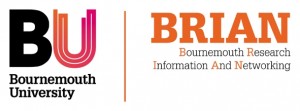
BRIAN (Bournemouth Research Information And Networking) – BU’s publication management system and how it’s linked to the BU staff profile pages. If you have any problems accessing the system or you have any queries please contact BRIAN@bournemouth.ac.uk and the BRIAN team will be happy to help.![]()
BURO (Bournemouth University Research Online) – BU’s institutional repository. If you require help assessing whether an open access version of your work can be contributed to BURO please contact your Subject Library Team or SAS-BURO@bournemouth.ac.uk.
RED (Research and Enterprise Database) – this is a record of all the research and knowledge exchange activity which takes place at BU. If you have any problems accessing the system or you have any queries please contact the R&KE Office .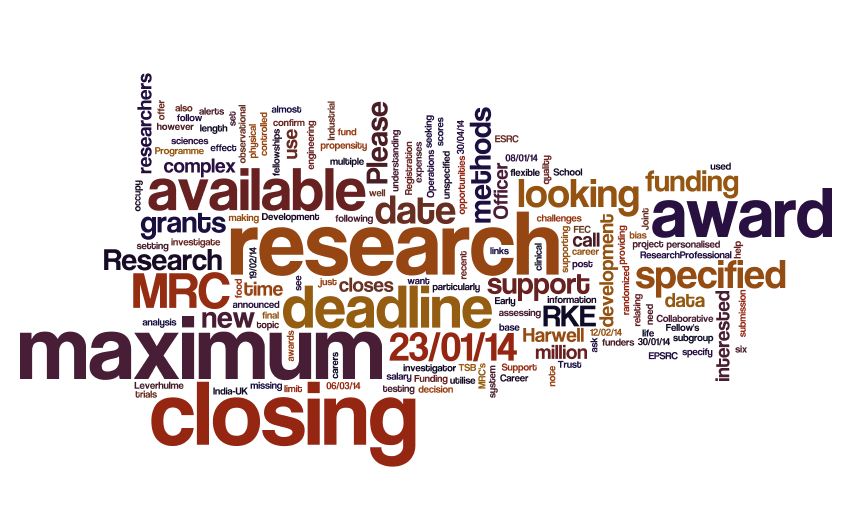
Please note that Shelly Maskell is the new Research Outputs development officer within R&KEO and as part of this role, Shelly now manages BRIAN.
BU Researchers launch a new online copyright resource at the AHRC Creative Economy Showcase London

 Following the internal launch at BU on the 14th February 2014, BU Researchers at the Centre for Intellectual Property Policy and Management (CIPPM) launched the Copyrightuser.org at The Arts and Humanities Research Council (AHRC) Creative Economy Showcase.
Following the internal launch at BU on the 14th February 2014, BU Researchers at the Centre for Intellectual Property Policy and Management (CIPPM) launched the Copyrightuser.org at The Arts and Humanities Research Council (AHRC) Creative Economy Showcase.
The event was held at Kings Place, London, on Wednesday 12th March 2014. The Showcase demonstrated the outputs and innovations of AHRC investments in the Creative Economy through presentations, workshops and exhibitions. The sectors exhibited on the day, included fashion, design, video games, architecture, broadcasting, archives, digital technologies and dance.
Amongst the various funded initiatives showcased on the day, Copyrightuser.org held a prominent exhibition stand and exhibited the website which was complemented by large posters, bookmarks and myth/reality cards (illustrated below) which explained the most common myths about copyright.
This high-profile event was attended by over 450 delegates and included policy-makers, business leaders in the creative industries, knowledge exchange practitioners, directors of research in universities, senior representatives from partner organisations in the Creative Economy, other strategic funding agencies in the sector, representatives from the AHRC’s investments in the Creative Economy and other stakeholders.
Keynote speakers included amongst others Sebastian Conran (Designer), the Hon David Willetts (Minister of State for Universities and Science), Ed Vaizey MP (Minister for Culture, Communications and Creative Industries) and Professor Rick Rylance (CEO, AHRC).
Highlights from the day can be streamed here.
Copyrightuser.org was funded by the BU Fusion Investment Fund in 2012 and was developed by the Business School’s Centre for Intellectual Property Policy and Management (CIPPM) in collaboration with Centre for Excellence in Media Practice (CEMP). Following the success of the Fusion Funded project, the CIPPM-led team went on to secure RCUK funding provided by CREATe in August 2013 to extend the scope of the project. Phase II of the copyrightuser.org is now underway.
The launched online resource aims to make UK copyright law accessible to creators and members of the public. This 1-minute video captures the concept behind the Copyrightuser.org project.
Using quantitative and qualitative methods the site aims to provide answers to the most pressing concerns that creators and the public have about copyright law. To achieve these aims, interviews with creators where conducted and a video for each creative sector was produced demonstrating their thoughts and questions about copyright, see the musicians video here for example. Secondly, 200 frequently asked questions posted by users online were sourced, analysed and coded down to the 20 most common.
The Copyrightuser.org has so far been received very well as evidenced by the positive feedback from various organisations, individuals, legal professionals and the creative industries.
During the launch, the website received 232 visits; and has now received over 1,558 visits to date.
Please also visit our twitter page – @copyrightuser to keep up with the Copyrightuser.org developments.
The copyrightuser.org team consists of:
Dr. Dinusha Mendis (Principal Investigator & Co-Director CIPPM)
Mr. Bartolomeo Meletti (Lead Multimedia Producer and CIPPM Research Assistant)
Ms. Hayleigh Bosher (PhD Candidate (Copyright) and CIPPM Research Assistant)
Professor Martin Kretschmer (Principal Investigator & Director CREATe)
Dr. Kris Erickson (Co-Investigator, CREATe).
The team is further assisted by a Production Team consisting of Marco Bagni (Art Direction, Design and Animation), Sar:co (Music and SoundFX), Davide Bonazzi (Illustrations) amongst others and an Editorial Board consisting of Professor Maurizio Borghi (Director, CIPPM); Professor Ruth Towse (Co-Director, CIPPM); and Professor Ronan Deazley (Professor of Copyright Law, University of Glasgow) amongst others.


Dash7 for remote patient monitoring via mobile phone
We would like to invite you to the next research seminar of the Creative Technology Research Centre that will be delivered by Andrew Yearp.
Title Dash7 for remote patient monitoring via mobile phone
Dash7 for remote patient monitoring via mobile phone
Time: 2:00PM-3:00PM
Date: Wednesday 26th March 2014
Room: P302 (Poole House, Talbot Campus)
Abstract: Wireless Remote patient monitoring systems provide an improved environment for hospital patients while expanding the range physiological information available to medical personnel. With these developments patients are now free from wires, but are still contained within the range of the wireless monitoring system. This seminar explores the application of Dash7 and mobile phone technologies in patient monitoring, particularly in hospital wards. The functionality of a prototype system which has been developed so far will be demonstrated during this seminar.
We hope to see you there,
Dr. David John
Business School Professor on BBC South Today
 The Business School’s Professor Jens Holscher will be live on BBC South Today (19.03.14) at 6:30pm to discuss the outcome of George Osborne’s Budget. There will also be clips on http://www.fireradio.co.uk/ today @ 3:00, 4:00 and 5:00 pm!
The Business School’s Professor Jens Holscher will be live on BBC South Today (19.03.14) at 6:30pm to discuss the outcome of George Osborne’s Budget. There will also be clips on http://www.fireradio.co.uk/ today @ 3:00, 4:00 and 5:00 pm!
Significant Professional Practice Role and Contributions
Dr Zulfiqar Khan, Director Sustainable Design Research Centre has been appointed as Industrial Advisor (voluntary role) by the Institution of Mechanical Engineers (IMechE). The role of Industrial Advisor (IA) is to evaluate membership applications where candidates are usually not required to attend a membership interview. IA also evaluates Fellowship applications of the Institution. IA provides an evaluative report to the IMechE Professional Review Committee (PRC). IAs are appointed by the IMechE to provide expert guidance to the Institution staff, the Professional Review Committee and where necessary, other committees who are involved in the membership application process.
“The Industrial Advisor’s prime responsibility is to undertake an initial peer assessment of applications in a variety of situations where an interview is not normally required:
- Applications for transfer of Member to Fellow
- Applications from existing CEng, IEng or EngTech registrants
- Applications via a Mutual Recognition Agreement (MRA)
- Applications via the European Mobility Directive (EMD)
Industrial Advisors will normally assess applicants from their indicated areas of expertise.”
If you are interested to know more about the IMechE, its membership/registration please click on the link or contact
Dr Zulfiqar Khan (Associate Professor)
Director Sustainable Design Research Centre
Faculty of Science & Technology
LAST REMINDER – Don’t Miss Out… Still Some Space on the Marie Curie and Horizon 2020 Lunchtime Info Sessions?
Just curious or planning to put in an application to the Marie Curie scheme – don’t miss out….. pick a lunchtime session and get yourself booked in NOW via staff development – first session tomorrow!! Click on the links below or send them a quick email with the details of the session(s) you would like to attend
To learn more about the Marie Skłodowska Curie calls, please book NOW via staff development:
- Thursday 20th March, 12noon-2pm on Lansdowne Campus,
- Wednesday 26th March, 12noon-2pm on Talbot Campus
Thinking about other EU schemes? To learn more about Horizon 2020 as a whole, please book NOW via staff development:
If you are already developing a Marie Skłodowska Curie proposal and would like a one-to-one Dr Martin Pickard after one of the information sessions, please contact me Dianne Goodman. I only have the following 3 appointment slots left on the 20th of March at the Lansdowne Campus:
1000 – 10:45am, 14:30 – 15:15pm or 15:15 – 16:00pm
Remember the Marie Curie calls under FP7? Well, they are new and improved under Horizon 2020 and have been renamed and revised…
Dr Martin Pickard, the trainer says: “The new Marie Skłodowska Curie schemes within Horizon 2020 have considerable relaxed rules enabling even greater opportunities for participation; from individual research fellowships to medium term collaboration exchange. Presenting Horizon 2020 Marie Skłodowska Curie as a whole, the workshop also focuses on the opportunities for individual fellowships to highlight these opportunities and presents how to approach them to ensure a maximum chance of success (typically better than 1 in 3)”.
And don’t forget that BRAD offers a range of additional training opportunities which are very helpful to developing proposals for EU funding. These include:
- Research Bid Writing Workshop, Talbot Campus, Talbot Campus, 26th March, 9-11:30am
- Networking and Collaboration Opportunities, Talbot Campus, 2nd April, 2.30-4:30pm
Why not come along to all the available training sessions and boost your chances of being successfully funded by the European Union?
FIF supporting work with the BSO to create a BUDI orchestra
 An orchestra for people with dementia and their families faciliated by players from the Bournemouth Symphony Orchestra (BSO) and BU Music students has been funded following a successful application from Ian Jones, Ian Davis and I to the FIF CCCP strand. The kick off meeting with the musicians, students and the BUDI team was held on the 5 March and we are currently in the process of recruiting people with dementia, and their carers if they wish, to participate in a 10 week programme that will start in April and culminate with a performace at the Winton Life Centre on 14 June as part of the BU Festival of Learning. This is the first project that we are aware of where a symphony orchestra works with people with dementia giving them the opportunity to relearn instruments, learn instruments for the first time while combining this with the choir approach of many initiatives in the UK and worldwide which acknowledge the power of music for the well-being of those with dementia. The team working on this project are very excited about the possibilities this project offers, not just as an example of public and community engagement, and a fused approach to working between students, researchers and professional musicans that engages with those living in our community, but because it ensures that we address one of the fundamental myths that often surround dementia of decline in abilities, when in fact people with dementia can learn new things!
An orchestra for people with dementia and their families faciliated by players from the Bournemouth Symphony Orchestra (BSO) and BU Music students has been funded following a successful application from Ian Jones, Ian Davis and I to the FIF CCCP strand. The kick off meeting with the musicians, students and the BUDI team was held on the 5 March and we are currently in the process of recruiting people with dementia, and their carers if they wish, to participate in a 10 week programme that will start in April and culminate with a performace at the Winton Life Centre on 14 June as part of the BU Festival of Learning. This is the first project that we are aware of where a symphony orchestra works with people with dementia giving them the opportunity to relearn instruments, learn instruments for the first time while combining this with the choir approach of many initiatives in the UK and worldwide which acknowledge the power of music for the well-being of those with dementia. The team working on this project are very excited about the possibilities this project offers, not just as an example of public and community engagement, and a fused approach to working between students, researchers and professional musicans that engages with those living in our community, but because it ensures that we address one of the fundamental myths that often surround dementia of decline in abilities, when in fact people with dementia can learn new things!
Website & BRIAN Training Sessions
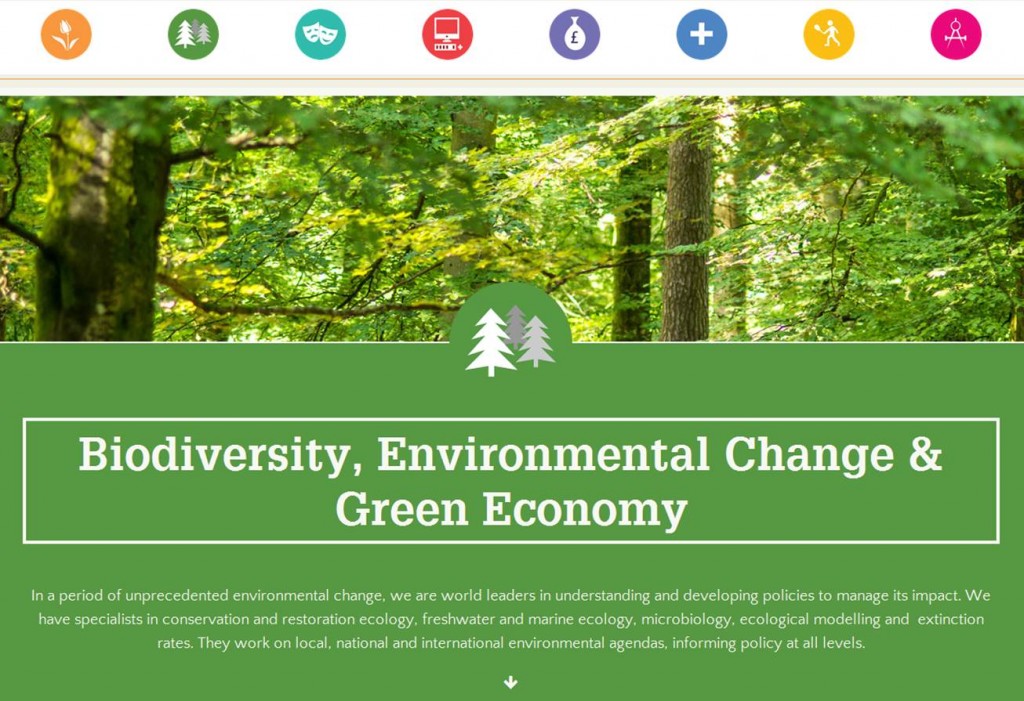
Due to popular demand we are hosting training sessions for the new research webpages together with BRIAN training.
These sessions are open to all BU academic staff, post graduate research students and those supporting researchers in their communications activity.
During the session you will learn the following:
Research Webpages
- Why BU has new research webpages
- How you can upload content to the website
- How the site can be used most effectively to maximise exposure of BU research.
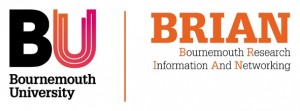
BRIAN
- What is BRIAN and why is it important
- How to set up and maintain your BRIAN profile
- How to ensure your details are correct
- How to request a photo is uploaded
- How BRIAN links to your external staff profile
To book on one of the following sessions please use the links below…
Thursday 27th March 2pm in P421 Poole House, Talbot Campus
Thursday 17th April 2pm in P421 Poole House, Talbot Campus
We hope to follow these with a session at the Lansdowne Campus (room pending). If you would be interested in a Lansdowne session or you have any queries, please email Shelly Maskell on smaskell@bournemouth.ac.uk
FUSION within Sustainable Design Research Centre (SDRC) – Faculty of Science & Technology
“At the heart of the BU2018 strategy is the powerful fusion of research, education and professional practice, creating a unique academic experience where the sum is greater than the component parts”.
SDRC has been actively engaged with the BU Fusion initiative through various methods i.e. Fusion fund, Festival of Learning, Fusion conferences, international collaborations, chairing international conferences, keynote & invited guest speaking, journal reviews & editorship, funding councils review panels, visiting professors from international HE, engaging with regional industry & community stakeholders and research informed education.
Some examples of research informed education & linkages between the two academic activities are provided briefly.
Design Engineering Level – C
Unit: Design Methods & Projects (40 credit)
Dr Zulfiqar Khan is leading this significant unit within the Design & Engineering framework in the Faculty of Science & Technology. This unit has four projects. Final project (project 4, 50% of the course work) is linked to The Tank Museum. An educational trip to the museum is part of the course work, an additional visit (complimentary free entry for the day), which involves access/study to/in archives and study of engineering systems & components within design & engineering context. This project is linked to the PhD research projects with the Tank Museum [Zulfiqar Khan lead] and current collaborative research project with the Defence Science & Technology Laboratory (DSTL) Ministry of Defence [Zulfiqar Khan lead]. Topics in these projects are related to the Sustainable Design Research Centre areas of Corrosion, Contact Mechanics and Tribology.
Design Engineering Level – H
Unit: Advanced Technology & innovation (40 credit)
Dr Zulfiqar Khan is leading this core unit within the Design & Engineering framework in the Faculty of Science & Technology. The students submit a research paper (50% of the coursework) in the second semester. Students have the opportunity to get involved with the existing PhD programmes within SDRC [mainly led by Zulfiqar Khan] or engage in new mini research projects. Students are involved with the Sustainable Design Research Centre research themes in Renewable Technology, Corrosion, Tribology & Sustainable Design. Students published 2 x journal and 1 x Conference papers in AY 2012-13. Students have published 1 x journal paper this year. 2 x journal & 1 x conference papers are submitted in AY 2013-14 and are currently under review.
Design Engineering Level – I & H
Unit: Design Projects (40 credit) and Final Design Projects (60 credit)
Zulfiqar is QS for level I and supervised the following level H projects. Students in both levels were involved in the Sustainable Design Research Centre Renewable Technology theme in collaboration with community led Poole Tidal Energy Partnership [ZK one of the founding directors] projects in Tidal Energy. Final year projects in Tidal Turbine and Heat Pump were showcased in the BU Festival of Design & innovation (FoDI) 2011-2012. Level I students were set projects to design non-rotating tidal turbines and students presented their work to the community stakeholders in renewable technology.
Product Design Level – H
Unit: Design Projects 3 (60 Credits)
A retro-fitted horizontal axis wind turbine (HAWT) was designed & a functional prototype was developed by a final year student [ZK supervised]. Student participated and presented his work in the BU Renewable Technology Public Engagement (Question Time) Event as part of the BU Festival of Learning 2013 organised by SDRC [ZK and Mark Hadfield].
MEng Level – I
Unit: Thermo-fluids & Heat Transfer (20 credit)
Zulfiqar Khan contributed to the development of this unit and has been leading as unit leader. Two research projects in Solar-thermal technologies (thermal conductivity and thermal expansion) are fully funded by Energy Company [ZK lead] within Sustainable Design Research Centre. This research is supported by off campus experimental and simulation labs at the industrial unit [ZK lead]. A lab has been developed at BU to fully link the newly developed unit through its fundamentals to the current researches in thermo-fluids, heat transfer (thermal conductivity, thermal convection) and fluids (Bernoulli’s, Frictional flow, Fluid properties) linking research in Solar-Thermal technologies. MEng level I students have been performing experiments in fluid properties and heat transfer which are directly linked with the researches within SDRC.
Students’ lead published papers
- Nugent, M., Khan, Z. (2014). The effects of corrosion rate and manufacturing in the prevention of stress corrosion cracking on structural members of steel bridges. The Journal of Corrosion Science and Engineering JCSE, 17(16). Retrieved from http://www.jcse.org/
- Wilton-Smith, K., Khan, Z., Saeed, A., & Hadfield, M. (2013). Accelerated Corrosion tests of Waste-gated Turbocharger’s Adjustable and Fixed End Links. In 11th International Conference on Surface Effects and Contact Mechanics. Siena, Italy: Wessex Institute of Technology, UK. Retrieved from http://www.wessex.ac.uk/13-conferences/contact-and-surface-2013.html
- Dobson, P., & Khan, Z. (2013). Design considerations for carbon steel pipes materials’ selection applied in fossil powered plants subjected to wet-steam flow accelerated- corrosion review paper. Journal of Corrosion Science and Engineering, 16, 1-13. Retrieved from http://www.scopus.com/source/sourceInfo.url?sourceId=12326&origin=recordpage
- Denham, L., & Khan, Z. (2013). The prevention of corrosion and corrosion
stress cracking on structural members of
fixed deep sea oil rigs. The Journal of Corrosion Science and Engineering, 16, 1-13. Retrieved from http://www.jcse.org/
If you have interests in BU Fusion, Research informed education and or SDRC research activities and would like further information then please contact
Dr Zulfiqar Khan (Associate Professor)
Director SDRC
An EU Masters in Dementia
Positive  about Dementia is an EU multi-lateral project to develop an inter-disciplinary Masters programme to educate and develop an effective and informed dementia workforce. It was launched in September 2013 and is funded by the EU Lifelong Learning programme. The Positive about Dementia Masters programme will take a positive and appreciative view of the life experience of people living with dementia. The curriculum will contain modules that will explore dementia awareness, evidence-based practice,and research to inform how we can support the wellbeing of people with dementia through educating dementia professionals. The BU team (involving colleagues from SciTech, the Business School, HSC and BUDI) hosted the kick off meeting back in December and following our next team meeting in Dublin in February we are moving full steam ahead with partners in all countries currently conducting consultations with a range of local stakeholders including service commissioners and providers as well as people with dementia and their carers about their views on what the curriculum should cover. A website has been created which will document our development activities over the next 2 and 1/2 years www.posadem.eu. In due course we will be looking for students to pilot the modules we create. If you have a view about what the curriculum should look like or if you know someone who may be interested in being one of our pilot group students do get in touch.
about Dementia is an EU multi-lateral project to develop an inter-disciplinary Masters programme to educate and develop an effective and informed dementia workforce. It was launched in September 2013 and is funded by the EU Lifelong Learning programme. The Positive about Dementia Masters programme will take a positive and appreciative view of the life experience of people living with dementia. The curriculum will contain modules that will explore dementia awareness, evidence-based practice,and research to inform how we can support the wellbeing of people with dementia through educating dementia professionals. The BU team (involving colleagues from SciTech, the Business School, HSC and BUDI) hosted the kick off meeting back in December and following our next team meeting in Dublin in February we are moving full steam ahead with partners in all countries currently conducting consultations with a range of local stakeholders including service commissioners and providers as well as people with dementia and their carers about their views on what the curriculum should cover. A website has been created which will document our development activities over the next 2 and 1/2 years www.posadem.eu. In due course we will be looking for students to pilot the modules we create. If you have a view about what the curriculum should look like or if you know someone who may be interested in being one of our pilot group students do get in touch.
School of Tourism Researcher Presents Keynote on CSR at ‘8th Health and Wellbeing at Work Conference’
School of Tourism researcher Dr Tim Breitbarth (Sport Academic Group) delivered a keynote presentation at the 8th Health and Wellbeing At Work conference in Birmingham at the beginning of March. Health and Wellbeing At Work is the UK government’s programme for improving the health and wellbeing of working age people.
Now in its 8th successful year, the two-day conference held at the NEC featured – for the first time – a track fully dedicated to Corporate Social Responsibility (CSR). Tim has published widely on CSR in international business and sport. The thousands of national and international participants could pick and mix from 20 tracks and visit the large exhibition.
Following Tim’s presentation on ‘Making the business case for CSR’, other well-known presenters and practitioners like Professor David Crowther (De Montfort University), Mark Baird (Head of Industry Affairs & Alcohol Policy, Diageo), Nicky Day (Director of Corporate Partnerships, WWF) and Karen McArthur (Global Head of Corporate Responsibility, Thomson Reuters) informed and inspired the audience.
Invited by Sterling Events, Tim also co-chaired the track together with Yogesh Chauhan (Director Corporate Sustainability, Tata Consultancy Services; Business In The Community Board Trustee Director).
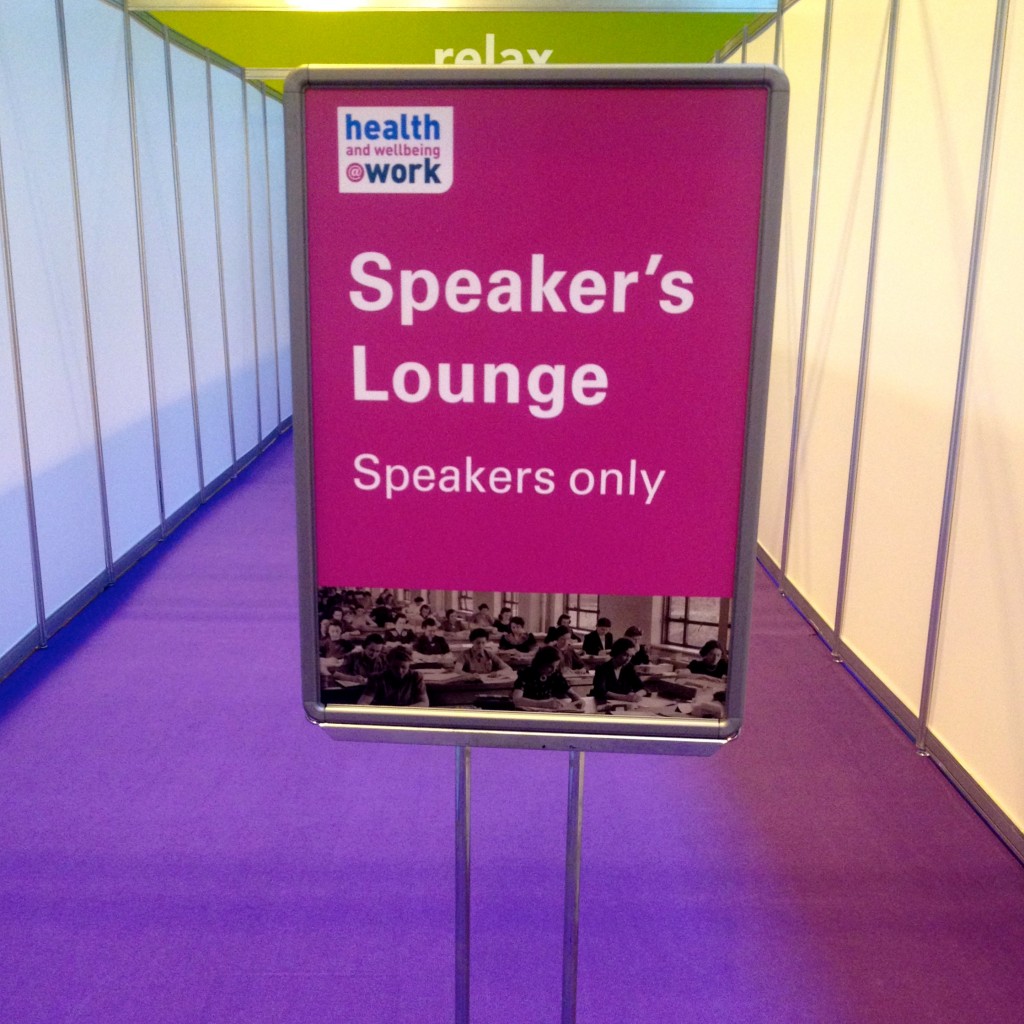
What happened in HE last week…
Monday
Labour have accused the coalition of “complete confusion” after Vince Cable said the write-off estimate on student loans will be revised downwards. Vince’s comments, in the House of Commons, appear to contradict recent remarks made by David Willetts. Coalition in ‘complete confusion’ over RAB, says Labour (THE)
Immigration policy
The Financial Times argue, in an editorial, that the UK will have to abandon its myopic policy on immigration for one that maximises the contribution that skilled foreign workers can make to the UK economy. UK should scrap its migrant targets (FT)
Student compensation
The OIA is expected to reveal that it ordered more compensation to be paid to students in 2013 than the £1m it demanded in 2012. Surge in student complaints about poor-value universities (Sunday Times)
Tuesday
Immigrants to Britain are better qualified than the existing population — and many of those who settled here generations ago are considerably outperforming their white neighbours in education, according to a new study.
- White British adults ‘less qualified’ than ethnic minorities (Telegraph)
- Many immigrants ‘are better qualified than white Britons’ (Times)
- Foreigners in UK more likely to have a degree (Mail)
Rankings
As the Times Higher Education releases its 2014 Reputation Rankings, Ben Jackson advises prospective students to take league tables with a pinch of salt. He speaks to Dan Seamarks, a prospective journalism student, who thinks league tables are an outdated form. “I was constantly told that I must look at league tables and use them when making my final decisions,” he said. “However, all of my universities’ strengths lay in different places.” No league table is perfect: Why you shouldn’t worry about university rankings (Independent)
Student recruitment
Universities are allocating more time and money to marketing open days, engaging with students on social media, improving their prospectuses and developing their university websites, a Guardian survey finds. Of those polled, 57% of marketers said open days were more important than five years ago, alongside external digital advertising (72%) and marketing on social media (98%). Have traditional student recruitment campaigns lost their bite? (Guardian HE)
Advice and guidance
Michael Gove’s decision to marginalise careers professionals and hand legal responsibility for careers guidance to schools, with no extra resources to back it up, has united a diverse array of voices in opposition. Gove faces criticism as delays to careers guidance jeopardises students’ futures (Guardian)
Wednesday
The CBI has said that the government needs to do more to make careers in STEM more attractive. It recommends cuts in tuition fees for some STEM subject courses and better training for existing workers.
- CBI call to cut tuition fees to end ‘skills vacuum’ (BBC)
- Cut cost of STEM courses to boost economy, says CBI (Telegraph)
Destination data
A ‘pioneering school’ set up in a poor area of London, under the free schools policy, is celebrating news that 100 of their students have received offers to study at Russell Group institutions. The Department for Education will certainly be happy. Let’s just hope the students have had the right advice and guidance from the school. New academy offered 100 places at top universities (Times)
Thursday
HE policy
Student places: David Willetts has cautioned universities that they may not fill the tens of thousands of extra undergraduate places, being made available over the next two academic years, at least in the short term. Sector’s challenge is to fill the gap when the cap comes off (THE)
Two-year degrees: The Conservative party in Wales has floated the possibility of cutting degree courses from three to two years to help cut student debt and get youngsters into the workplace more quickly if it wins power in Cardiff. This is similar to the work currently underway by John Denham MP in England. Welsh Conservatives float idea of two-year ‘fast-track’ degree courses (Guardian)
Student attitudes: Most students still feel positive about their investment in their education despite the higher tuition fees faced by first- and second-year students at university in 2013-14, the Sodexo-Times Higher Education University Lifestyle Survey reveals. How has debt from higher fees changed students? (THE)
Connecting research and growth
Catapult Centres: Vince Cable has commissioned Hermann Hauser, co-founder of Acorn Computer, to look at how the catapult centres might be further developed. Technology research centres face entrepreneurial scrutiny (FT)
N8 Research Partnership: The N8 Research Partnership of universities is investigating the possibility of pooling its academic expertise for a major research project, according to the organisation’s new chair, Sir Alan Langlands. N8 to pool research to make a big splash (THE)
RCUK grants: Women are less successful than men in securing research council grant funding, according to new data. The analysis by Research Councils UK suggests that female scientists lag behind men in terms of grant success rates at almost every stage of their careers. Women trail men in securing research council grants (THE)
Research and development: UK spending on research and development as a proportion of gross domestic product fell in 2012, according to new figures. This ranks the UK 12th in terms of research and development expenditure in the EU-28 group. R&D spending drops as share of GDP, new statistics show (THE)
International
Student visas: Some universities could lose their licences to recruit overseas students if the government goes ahead with plans to further tighten visa rules, a former Home Office official has warned. The plans were outlined in a speech given last week by James Brokenshire, the immigration minister, in which he said the Conservatives would plough on with their drive to cut net migration to the “tens of thousands” by 2015 – despite the figure having risen recently to 212,000. Licences to recruit overseas students at risk (THE)
Expansion: “Visionary” vice-chancellors are pushing universities to expand overseas in ways that are not properly thought through and lack an “analytical” rationale, according to a consultant who has interviewed a number of senior university leaders. V-cs urged to put data first in race to expand overseas (THE)
The weird world of the Daily Mail
Don’t hire any staff: A bit of a strange article from the Daily Mail. Why does Open University chief on £400,000 need a speech writer? (Daily Mail)
Friday
The Times is looking at possible reasons behind the growing number of Russell Group Vice-Chancellors who are leaving their posts. They have apparently learnt that “governing councils are being urged to be tougher in making vice-chancellors justify their performance.” University heads roll in drive to justify salaries (Times)
Applications
The OFT published today the outcome of its call for information on higher education in England, launched in October 2013 to see “how choice and competition were working” in the sector. The report recommends that the Competition and Markets Authority – the OFT’s successor body which takes over on 1 April – undertakes a “compliance review” of the sector.
- Universities accused of hiding information (Telegraph)
- Universities should face more scrutiny over competition, says OFT (THE)
STEM
Industry is being starved of highly-skilled workers because of a shortage in the number of teenagers studying subjects such as science and maths to a high level, business leaders warned today. Semta – the sector skills council for science, engineering and manufacturing technologies – warned that it was facing a shortfall of 80,000 workers within the next two years alone. Telegraph challenge to show science and engineering are the way ahead (Telegraph)













 New Nepal scoping review on maternal & neonatal health
New Nepal scoping review on maternal & neonatal health Fourth INRC Symposium: From Clinical Applications to Neuro-Inspired Computation
Fourth INRC Symposium: From Clinical Applications to Neuro-Inspired Computation Writing policy briefs
Writing policy briefs Upholding Excellence: The Concordat to Support Research Integrity
Upholding Excellence: The Concordat to Support Research Integrity ECR Funding Open Call: Research Culture & Community Grant – Application Deadline Friday 12 December
ECR Funding Open Call: Research Culture & Community Grant – Application Deadline Friday 12 December MSCA Postdoctoral Fellowships 2025 Call
MSCA Postdoctoral Fellowships 2025 Call ERC Advanced Grant 2025 Webinar
ERC Advanced Grant 2025 Webinar Horizon Europe Work Programme 2025 Published
Horizon Europe Work Programme 2025 Published Horizon Europe 2025 Work Programme pre-Published
Horizon Europe 2025 Work Programme pre-Published Update on UKRO services
Update on UKRO services European research project exploring use of ‘virtual twins’ to better manage metabolic associated fatty liver disease
European research project exploring use of ‘virtual twins’ to better manage metabolic associated fatty liver disease